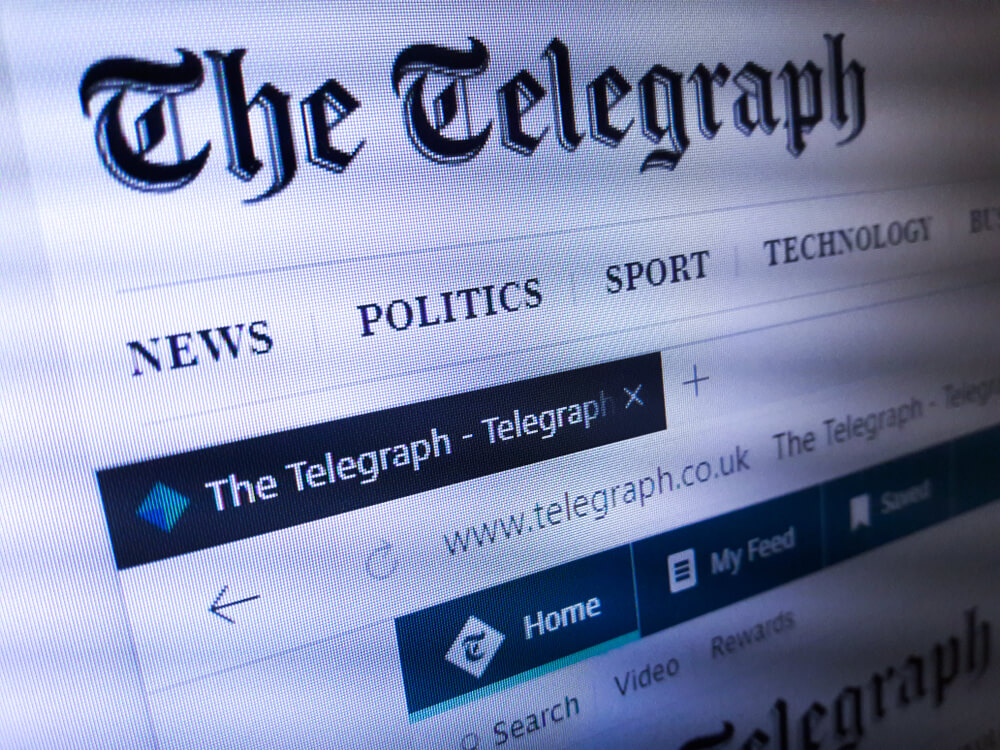The UK’s unashamedly partisan national newspapers have long prided themselves on their ability to influence the course of the country’s politics.
“It's The Sun Wot Won It”, the top-selling British daily famously boasted in 1992 after backing the Conservative Party’s victory in that year’s general election.
But how far was that outcome due to the newspaper’s influence or was it just a canny bet?
Twenty years later, Rupert Murdoch, the paper’s owner, dismissed the suggestion that his titles could determine the outcome of elections when he told a judicial inquiry into the nefarious practices of the press: “We don't have that sort of power.”
Whatever the underlying truth, it appears that no amount of media influence could reverse the near inevitability of an opposition Labour Party victory in a general election to be held later this year.
The ruling Conservatives are consistently trailing by around 20 percentage points in opinion polls, a level of unpopularity from which no previous government has been able to recover.
Media attention has therefore switched to how bad the defeat will be under the party’s current leadership and what happens to the Conservatives the day after the vote.
An electoral wipeout
Taking centre-stage in that debate is the Telegraph, a title historically so wedded to the Conservatives that it is frequently referred to as the house journal of the party.
Since the turn of the year it has carried reports suggesting an electoral wipeout for the Conservatives on polling day and opinion columns lambasting Prime Minister Rishi Sunak as being to blame for the party’s dwindling fortunes.
In late January it found space for a column by Conservative MP and former cabinet Minister Simon Clark in which he urged the party to oust Sunak or face an election massacre.
His appeal followed publication of a poll in the Telegraph predicting a heavy electoral defeat.
Who is behind the Telegraph campaign and what is it that they hope to gain? This is where the issue gets more murky
The attempted coup d’etat soon fizzled out as Conservative grandees, including some on Clark’s right wing of the party, issued statements dismissing his intervention. Sunak’s potential challengers may have agreed with Clark’s sentiments but may also have judged that his timing was not right.
That has not deterred the Telegraph from pursuing what looked like a concerted campaign with headlines variously urging Sunak to hold the election now or accusing the party, under his leadership, of surrendering to left-wing orthodoxy.
So who is behind the Telegraph campaign and what is it that they hope to gain? This is where the issue gets more murky.
The involvement of the UAE
The 168-year-old newspaper is currently involved in a complex procedure that will determine its future ownership. The story so far: in mid-2023, Lloyds Bank took over the newspaper and its weekly stablemate, the Spectator, citing an unpaid £1.2 billion loan to its current owners, the Barclay family.
The bank set about looking for potential bidders. But that process was cut short when a US-based investment fund, backed by United Arab Emirates money, stepped up in December with a deal to settle the unpaid loan.
The UAE interest is represented by Sheikh Mansour bin Zayed, an Emirati royal who, incidentally, owns Manchester City football club.
The involvement of the UAE has raised widespread concerns not least within the Conservative Party and the pages of the Telegraph
The UK government, more sensitive to who runs the country’s newspapers than to who owns the Premier League, passed the matter to the regulators, a process that has just been extended until March after the investors altered the terms of their deal.
The involvement of the UAE, a state with a questionable record on human rights and press freedom, has raised widespread concerns, not least within the Conservative Party and the pages of the Telegraph.
Recent editions have prominently headlined opinion polls indicating overwhelming public opposition to foreign governments owning British newspapers, itself an indication of where the sympathies of those who actually produce the newspaper lie.
A number of Conservative grandees have become tangently involved in actively advancing or blocking the UAE-financed option, with those on the right of the party evidently favouring a sale to a domestic media owner.
Political preferences
It is fair to say that the eventual outcome of the current Telegraph imbroglio will have zero effect on the result of the next general election. The great British public know little about it, and probably care less.
The newspaper and its pro-Conservative competitors could, however, have an influence on how the party goes about recovering from likely electoral defeat. Will it move further right or seek to reclaim the centre ground?
 It is fair to say that the eventual outcome of the current Telegraph imbroglio will have zero effect on the result of the next general election
It is fair to say that the eventual outcome of the current Telegraph imbroglio will have zero effect on the result of the next general election
The traditional press may indeed exert an outsized impact on the choices taken by politicians, arguably greater than its impact on the ordinary readers who vote them in.
An Oxford academic study on the Sun’s 1992 moment acknowledged that the media can influence people's political attitudes and voting behaviour. But it questioned to what extent.
Analysing the impact of the Sun’s coverage over a number of years in which it switched to victorious Labour in 1997 before returning to the winning Conservatives in 2010, the study found people's underlying political preferences were unaltered.
It estimated the Sun’s decision to switch parties generated about half a million votes for the Labour party in 1997 from among its 10 million readers and about the same number for the Conservative party in 2010.